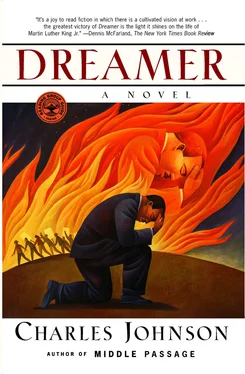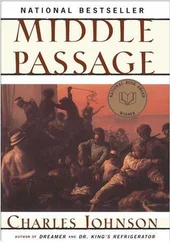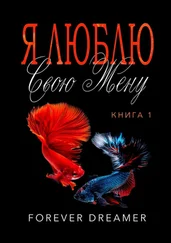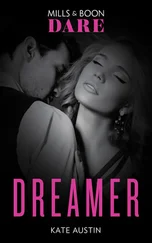He ran warm water (it seldom got cold) into his cupped hands, splashed it onto his face, and, looking up, peered at himself in the tiny cabinet mirror above the sink, experimentally touching his cheeks, his chin (he realized he needed to shave), and tracing two fingers across the length of his mustache. My face, he thought. And Chaym’s. But in no other way than the somatic were they equal. In fact, they were like negatives of each other. He laughed, humorlessly. The idea of justice in his life and Chaym’s was a joke. Not only was the distribution of wealth in society grossly uneven, he thought, but so was God-given talent. Beauty. Imagination. Luck. And the blessing of loving parents. They were the products of the arbitrariness of fortune. You could not say they were deserved.
He stared at his (their) image in the mirror, remembering simultaneously with pride and pain, gratitude and guilty that of everyone in his family he himself had easily the greatest oratorical skills. They outstripped those of his own father, his grandfather, and, to be honest, everyone else he knew. Some resented him for that. Down deep, he could not deny that his dearest friend, Ralph Abernathy, loved and bitterly envied the range and reach of erudition in his sermons. He did not want to recall how many times he’d poured himself, heart and soul, into his preaching only to have another, older minister with a room-temperature I.Q. clap him on the back when he was done, and say, with a smile that never reached his eyes, “Man, I hate you.” Or the jealous ones, no deeper than a dime, who talked about him behind his back as if he had a tail, and cornered him after his roof-raising sermons, and whispered this knife between his ribs, “No wonder them white folks want to integrate with you.” He’d never known exactly how to respond to their envy. He knew — and they knew — that although his gifts were a devastating weapon against racism, they separated him from them. The irony of his situation never escaped him: excellence brought praise — so often from whites — but also the danger of his becoming a pariah among Negroes if he didn’t somehow soften the separateness, the chasm his talent created between himself and others. Most of the time he played by those cutting remarks, or said something self-effacing, or quoted Jesus in Matthew 19:17 (Why callest thou me good? There is none good but … God), or he simply tried to do more for the bruised ministers who felt threatened by him, lavishly praising them to their congregations. In a democracy where all were purportedly equal, it was so important to do that, assuage the egos of those he’d left behind. What else could he do? At Morehouse he’d considered other careers — the law, medicine — until his junior year, when the Lord let him see how the Negro church, despite its emotionalism, might become a vehicle for the most sophisticated modern thinking. This, he realized, he could do. He could not sing like Belafonte, portray a character like Robeson, punch like Joe Louis, write a poem like Claude McKay, draw bitingly satiric cartoons like Ollie Harrington, or paint colorful, delicately balanced canvases like Jacob Lawrence. He was called to preach. It was his talent, but oh my, what of those who had no talent to speak of?
He pulled a comb through his hair, brushed his teeth, clicked off the bathroom light, and stepped into the kitchen, where, as soon as he entered, he found Smith’s odor — a commingling of tobacco and creosote — drifting sharply on the air. Coughing, he went back to the bedroom, carried his fan into the kitchen, and plugged it in on the counter. Then he opened the refrigerator, found a plate of Mama Pearl’s delicious apricot rugelach wrapped in foil and a half-finished can of Coca-Cola, and took these hack to the table, where he nibbled and let his thoughts go where they would. To his first meeting of the day, with the Agenda Committee. To Chaym. And then to the more troubling stories in the Book. One especially bothered him. The tale of two brothers. One’s offering God accepted, the other He rejected. Was not the one spurned, who brought murder into the world — by killing the source of that inequality — the first revolutionary to defy favoritism and an unjust authority? He let this unwanted idea unwind, moving him farther back to the revolt of angels led by one of ensorcelling beauty who would not acquiesce to servitude and an inferior status, for even in heaven there was a caste system. Seraphim, it was said, loved deepest; cherubim knew the most.
He pushed away his plate and rubbed his eyes, unwilling to think longer along these lines. A soft belch lifted from his belly, barely audible above the smear of noises from the street below — traffic, the hissing tires of a bus passing by. The kitchen clock read 5:30. Sunlight yeasted in the kitchen, slowly brightening the room and his spirits as well. He lit a cigarette and thought: yes, inequality was stitched into the fabric of Being. No one deserved greater natural gifts than others. But despite the fortuitous differences in men, they could volunteer to share one another’s fate. They could — in fact, should — rearrange the social world to redress the arbitrary whims of contingency, accident, and chance. If the fortunate did not help, rancor and bloodshed might never cease. The least advantaged had every right to break the social contract that had so miserably failed to meet their needs. They would rebel, riot as they were doing now in Chicago. For their own sake and survival, God’s favored had to lift those on whom He’d turned His back.
Morning pushed aside the previous night’s shadows. He stubbed out his cigarette in a bean-bag ashtray, considered again the case of Chaym Smith, then dug a finger into his mouth to dislodge a sliver of rugelach stuck in his dental work, feeling at last comfortable with this decision.
Twenty-four hours later, on July 18, Citizen King gave his consent. Most of that night, amidst billowing smoke from burning stores and ricocheting pistol reports in the darkness, I hastily loaded the trunk of my battered old Chevelle with cardboard boxes of film and files about the Movement and the minister. Amy agreed with King that it would be best to separate Smith from the city for a while. Removing him far from his old haunts, the locations that reminded him of his losses, might be just the caisson required for restoring his life. Downstate, in rural Jackson County (fondly called Little Egypt by locals who’d named their hot, dusty towns Cairo and Thebes after Old Testament cities), a few miles from Makanda, Mama Pearl owned a hundred-year-old farmhouse handed down from her father. For two weeks that would be, as Amy called it, our Nest.
Provided we escaped the South Side in one piece.
The riot’s devastation spread over 140 blocks, spilling into Slumdale, and we had to get across town to Smith’s room. The minister was now on the West Side, preaching brotherhood and peaceful revolution on streets that ran slick with blood. Black blood, as if in the city (any city) ritual acts of murder had to be repeated night after night to renew the city itself. I feared the fires might burn forever, akin to brimstone, for the influence of the neocolonial empire King so relentlessly criticized stretched from Southeast Asia to Rhodesia, Colombia to Watts. One block from the minister’s place, the police were shoving women and children into paddy wagons. Teenagers tossed Molotov cocktails at squad cars. At the corner of Sixteenth two white patrolmen weighted down by duty-belts chased a black teenager in blue jeans and a baseball cap through clouds of tear gas eerily backlit by the blaze from a torched pawnshop. Looters spilled from the building, hauling away portable Motorola televisions, shotguns, bolt-action rifles, and radios piled high in wobbly-wheeled shopping carts.
Читать дальше












